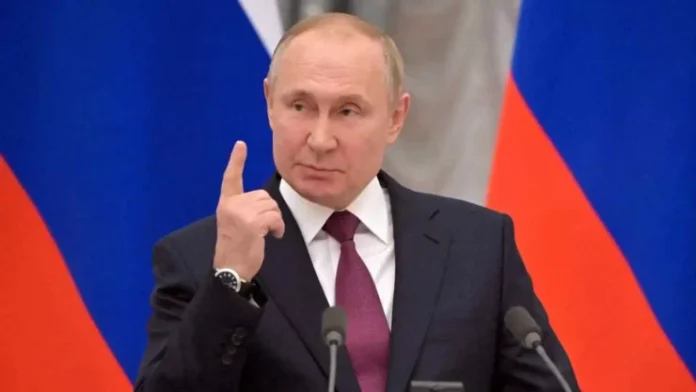One of the fallouts of Assad’s ouster has been Russia relocating its military assets from Syria to Libya. The fall of the Assad regime could be interpreted as the West, led by the United States, gaining an upper hand in the geopolitics of the Middle East. For over a decade, the US and several of its partners have been supporting the rebels in Syria against Bashar al-Assad, whose government had the support of Russia and Iran.
However, it would be too early to attribute Syria’s regime change directly to Russia’s weakened capability. It is important to consider whether the events in Syria have expanded the radius of the conflict between Russia and the West, as North Africa, particularly Libya, could become the theatre of geopolitical competition between the two adversaries.
Russia in Libya
Relocation from Syria to Libya only builds upon Russia’s existing presence in Africa. In recent years, Russia has rapidly expanded its outreach to Africa. Russia’s influence in Africa covers North Africa, the Central African Republic, and the Sahel.
Russia’s involvement in the Middle East and North Africa (MENA) region dates back to the Soviet era. The Soviet Union had a strong presence in this region, particularly in Egypt, Syria, Iraq, Libya, Algeria, Sudan, and Yemen. However, in the post-Soviet period, Russia reduced its focus on MENA, hoping to build cordial ties with the West. Even in 2011, when the NATO-led intervention overthrew Muammar Gaddafi in Libya, Russia did not veto the United Nations Security Council Resolution 1973. This action was perceived as Russia making an effort to improve its engagements with Western countries.
However, Moscow’s intentions to build steady ties with the West were not received positively among the Russian political elites. As a result, when Khalifa Haftar, a military general controlling Libya’s eastern part and the Libyan National Army (LNA), reached out to Russia for help in 2016, Moscow took this as an opportunity to strengthen its foothold in Libya and also use Libya as a launching pad to increase its outreach in other parts of Africa.

North Atlantic Treaty Organisation’s Southern Flank
Within the MENA region, as Russia concentrates its energies in Libya, it could pose a challenge for NATO’s southern flank. Within NATO, the eastern flank has always been considered more important as it overlooks Eastern Europe and Russia. The Russia-Ukraine war has further enhanced the gravity of NATO’s eastern flank. With Finland and Sweden becoming NATO members, the organization’s maximum focus remains on the eastern flank.
As the Russia-Ukraine war continues, the radius of the conflict between Russia and the West is steadily expanding. The perceived setback for Moscow in Syria need not translate into automatic gains for NATO against Russia.
An immediate reaction to Moscow moving its military assets from Syria to Libya came from Italy. Italy’s Defence Minister Guido Crosetto said that Russia’s movement from Syria to Libya is creating a security threat for the Mediterranean.
Italy may have raised a valid concern for the Mediterranean and NATO, but this concern also highlights a continuing weakness for NATO. As mentioned previously, NATO has always prioritised the eastern flank, while the southern flank has lacked a coherent strategy. The southern flank has also been considered a subordinate of the eastern flank. Russia’s apparent move to Libya could open a front of conflict between the former and NATO in Africa.
Russia’s relocation of military assets from Syria to Libya underscores a tactical adjustment amid shifting power dynamics. While the fall of the Assad regime is seen as a setback for Moscow, Libya’s strategic importance provides Russia a new stage to counter NATO’s influence in North Africa
Potential for Conflict
For a long time, Africa has been a chessboard for Russia and the West to exert their respective influence. NATO’s 2022 Strategic Concept, adopted at the Madrid Summit, underscored Russia as one of the major threats for NATO member countries. However, NATO’s apparent neglect of the southern flank provides Russia with an important space to manoeuvre in the Mediterranean region. Besides, Italy’s displeasure over NATO not prioritising the southern flank indicates discord among NATO members.
Additionally, NATO’s own standing among African countries is an impediment for the grouping to counter Russia’s influence. Russia has been able to exploit the resentment that many African countries hold against the West. Anger against the West among African nations ranges from issues such as the failure of the US, France, and other Western allies to alleviate poverty and create employment opportunities, to a steady rise in Islamic terrorism carried out by affiliates of Al-Qaeda and the Islamic State. This apparent failure of the West has allowed Russia to step in and provide security to countries in North Africa and the Sahel region, mainly through private military companies (PMCs) like the Wagner Group and later the Africa Corps.
In Libya, the eastern part under the control of General Khalifa Haftar has been an important centre for Russia’s military activities in Africa. Through this eastern part, Russia has countered Türkiye, a NATO member, which supports the Government of National Accord (GNA) based in Tripoli in western Libya. For over a decade, the GNA and the Libyan National Army (LNA) under Haftar have been at loggerheads over control of Libya. In June 2024, Russia pledged to enhance the capabilities of the Haftar-led LNA. Further, Russia is swifter at moving its resources compared to European countries and the US, which is another reason Russia is a preferred partner for many African countries.
NATO’s focus on its eastern flank has left vulnerabilities in its southern defences. As Russia strengthens ties with African nations and bolsters General Haftar’s forces in Libya, the Mediterranean emerges as a critical hotspot for this intensifying rivalry
Strategic Implications
Russia’s engagement, disengagement, and reengagement in the MENA region have been subject to the former’s approach to the West. With Russia’s ties with the West constantly declining since the Russia-Ukraine war, there is little possibility of Russia disengaging from the North African sub-region of MENA in the near future. Considering the challenges that NATO’s southern flank faces, Russia may look to North Africa as an ideal ground to counter NATO. For its part, NATO and its partners face a choice between countering Russia in Eastern Europe and North Africa. Relocating to Libya from Syria does not necessarily imply Russia’s diminished capabilities.
Russia’s ambitions to counter the West could increasingly manifest in North Africa. Libya also provides Russia with a base in the Mediterranean. This implies that uncertainty for Russia in Syria could be compensated through its growing presence in Libya. Although its resources may have stretched thin owing to a prolonged war with Ukraine, North Africa could prove to be a platform for Russia to challenge the West and NATO.
–The writer is an Independent Political Analyst and Researcher based in Vadodara. Follow him on Twitter: @NiranjanMarjani. The views expressed are of the writer and do not necessarily reflect the views of Raksha Anirveda

















